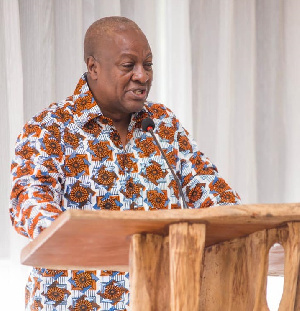No contribution, no chop in 2021 – Asafo Agyei to Mahama appointees, contractors

The cliché ‘no contribution, no chop’ will be the handbook of the next National Democratic Congress (NDC) government in 2021 when the party wins the 2020 general elections, Deputy Ashanti Regional Deputy Communication Officer Mr. Alex Kwaku Asafo-Agyei has revealed.
He has, therefore, warned former appointees who have turned their backs to the part and refused to lend support to be wary that they stand the risk of being chased away by foot soldiers if it wins the 2020 polls.
According to him, some of them have deliberately taken backstage and refused to contribute both in kind and cash towards the activities of the party but are quick to rush in begging for positions if luck smiles.
This he disclosed is unacceptable roping in some contractors who hitherto were in bed with the NDC party but have moved onto the New Patriotic Party (NPP) and failed to lend support to the umbrella family that once fed them.
“Let me send this warning to our former MMDCEs, contractors and other appointees who benefited but are refusing to support the party to come back to power to rethink of their decision”, the outspoken communicator fumed.
Mr. Alex Kwaku Asafo who spoke on Kumasi-based Nhyira FM morning show monitored by MyNewsGh.com bemoaned how the party is struggling to get representations at various radio stations in the region as panellists.
“Those appointees who benefited don’t want to defend John Mahama anymore. If their wives have advised them, no problem. Surely we will not remain in opposition forever”, he told host, of ‘Kroyi Mu Nsem’ political talk show Aduanaba Kofi Asante.
“The road contractors we know to be on our side too are now going to NPP and I want to tell them that they should remain there forever. They should never think of coming back if we come to power since we are going to deal with them”, Ashanti Regional Deputy Communication Officer of NDC, Mr. Alex Kwaku Asafo-Agyei warned.
Source: mynewsgh.com





